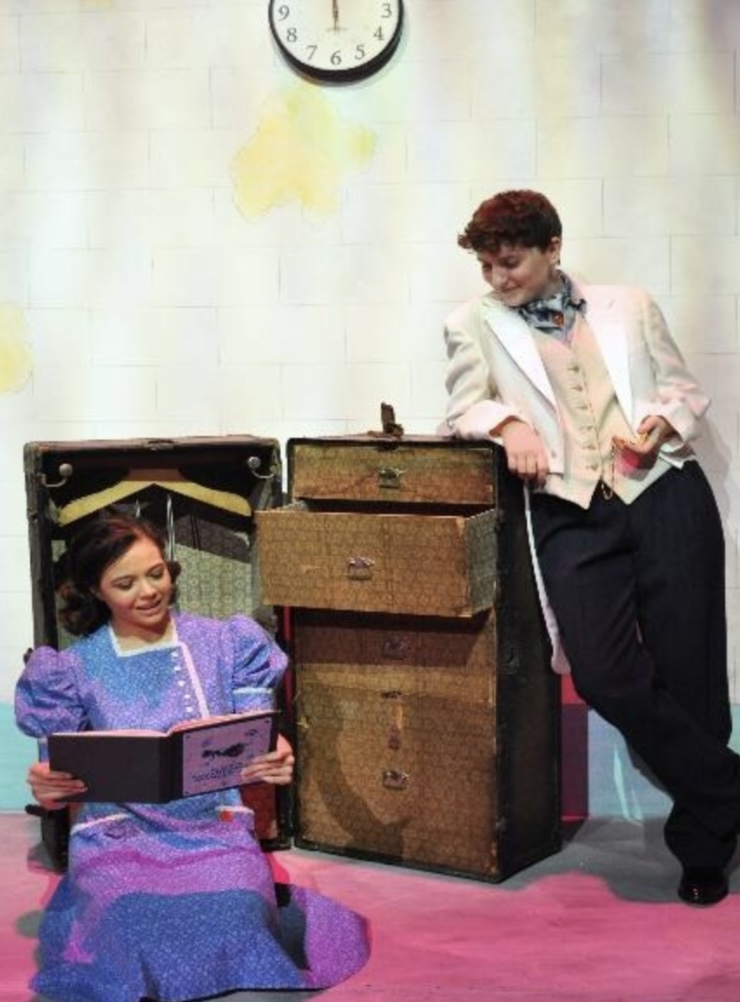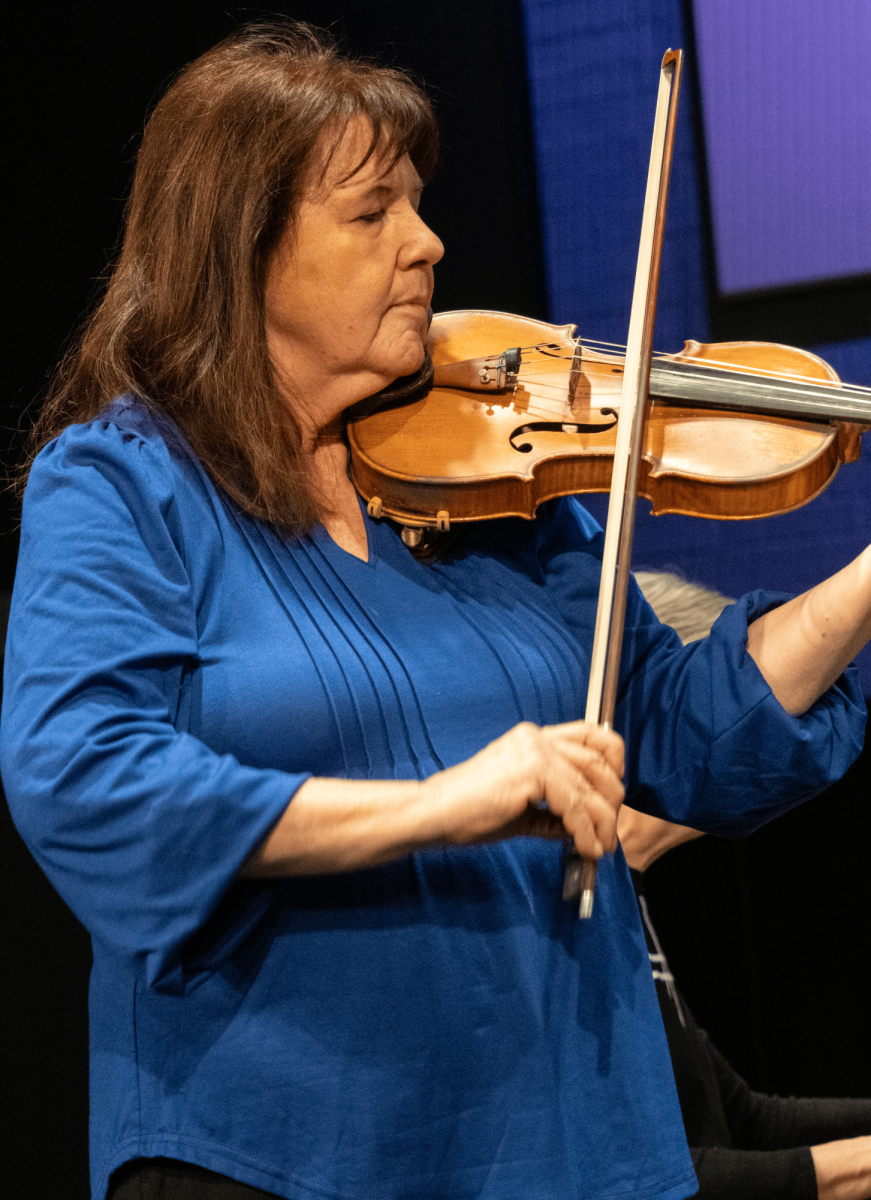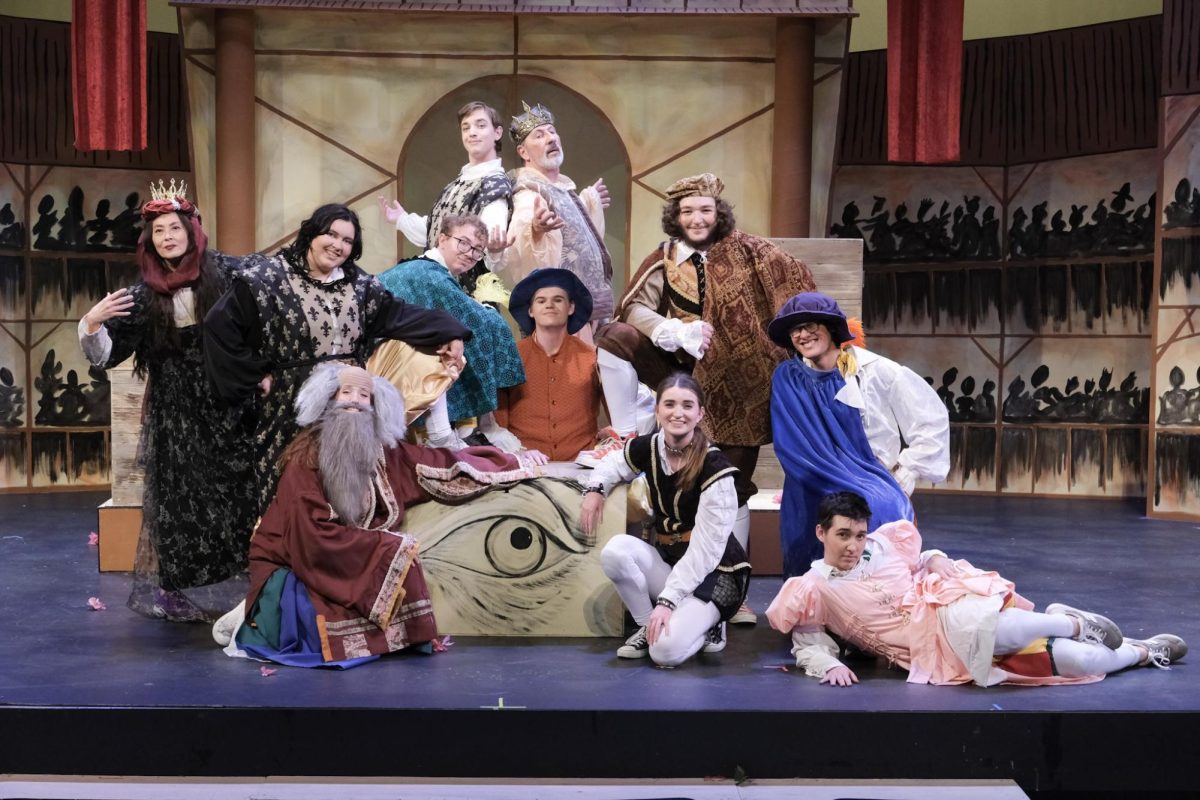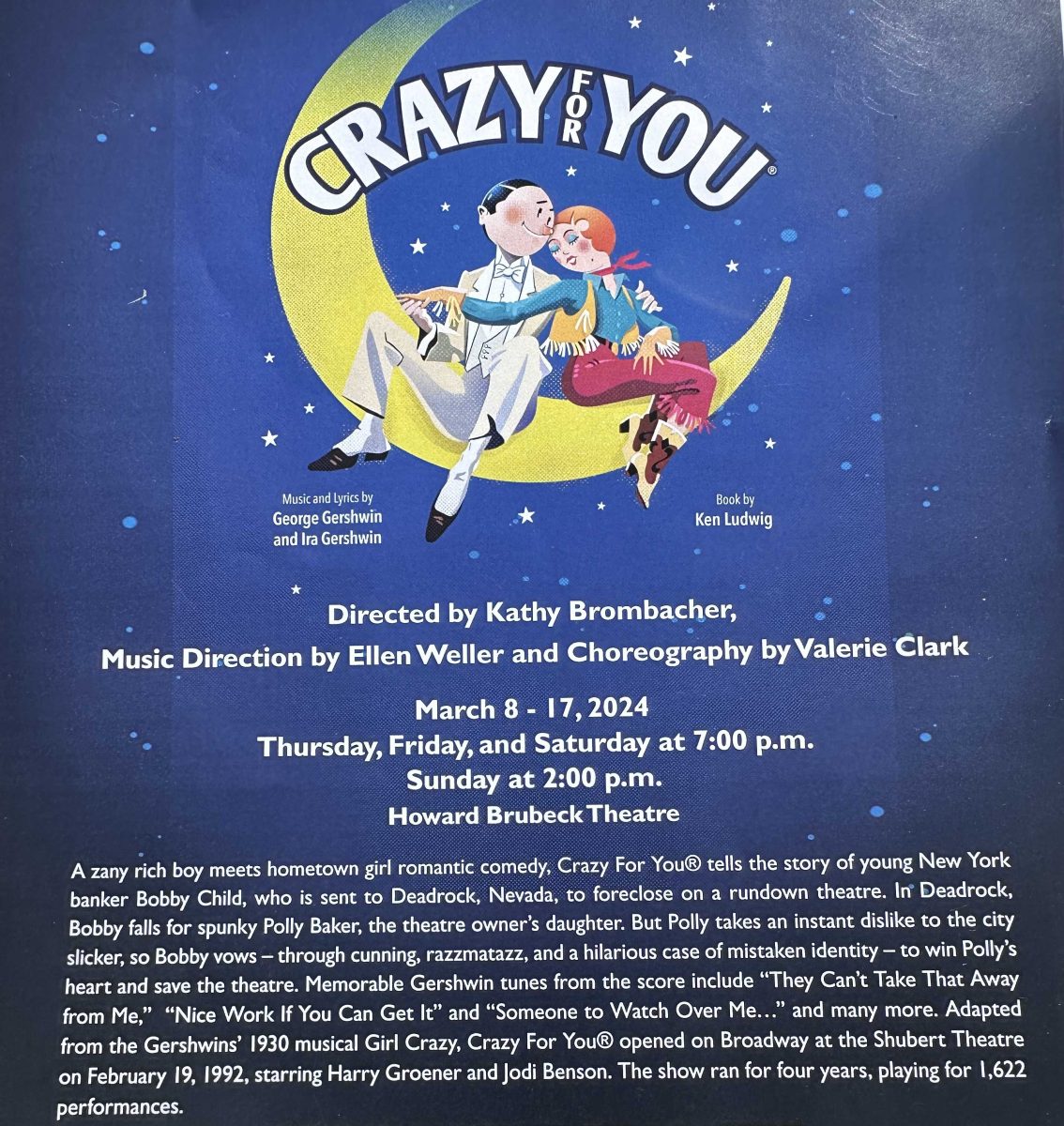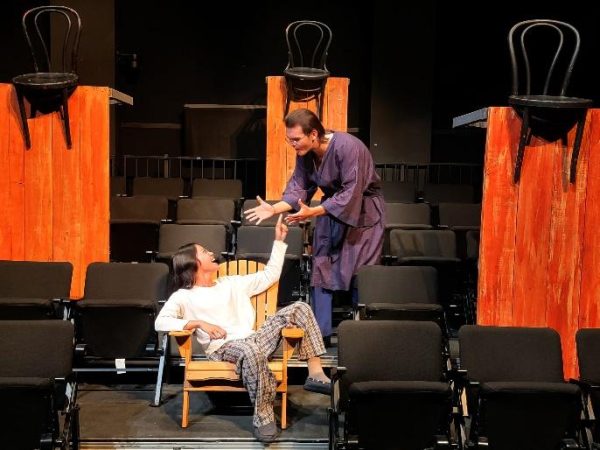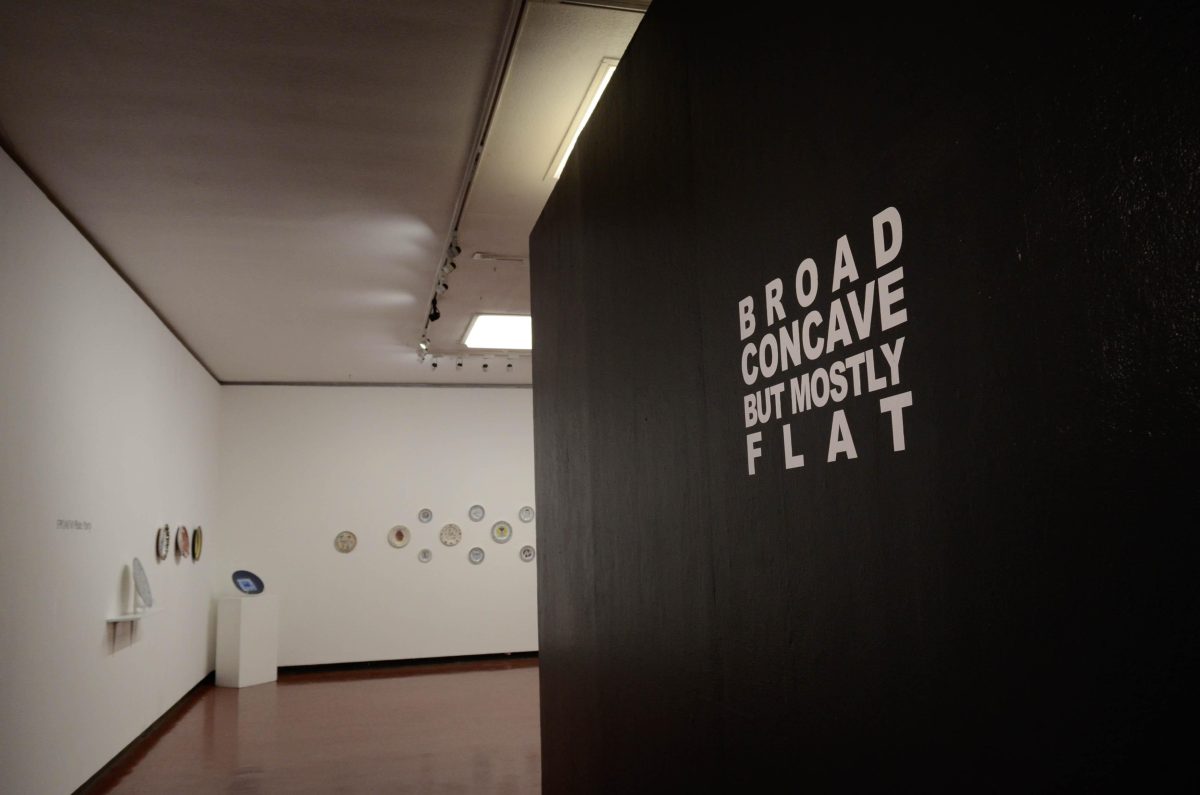SAN MARCOS—Robots, kidnapping, never-ending laundry, and a desire to belong in the world all create the story of Palomar Performing Arts’ upcoming play, “Heddatron.”
“Heddatron” tells the story of Jane Gordon, a pregnant housewife kidnapped by aliens. Her child, Nugget, and husband, Rick, must rescue Jane from her robotic captors. The play creates a bizarre yet familiar world of reality where everyone, including artificial intelligence, wants to feel like a human. The play will open in the Studio Theatre on May 3 at 7:30 p.m. Showings will continue until May 12. Tickets can be purchased in advance on the Palomar Performing Arts website or at the box office.

“Heddatron,” written by Elizabeth Meriwether in 2006, is a reimagination of Henrik Ibsen’s classic “Hedda Gabler,” released in 1891. This rendition interprets the play by telling the story of a newly married woman bored with her life through the lens of artificial intelligence. “Heddatron” will be the season’s final play, directed by Michael Mufson.
Mufson describes the play as having multiple layers and elements, including three timelines, videos, live feeds, and robots. The message of the “Heddatron” isn’t obvious at first glance, and the audience will have to piece together all the elements as they take this strange journey with the cast. Mufson said he hopes to leave audiences surprised with the play and inspire discourse on the growth of technology as AI continues to grow.
Nastya Sikora, a cast member, encourages students to see the performance because of all its different elements. Sikora plays Nugget, Jane and Rick’s 10-year-old daughter. She describes Nugget as a young girl in a challenging situation who wants to use her intelligence to make a difference.
“There’s some funny parts, sad parts, mixed emotions… It’s so much fun to see because of all the decorations and lights. It’s really one of the most professional performances I’ve been in,” Sikora said.
So, what about the robots?
“They function more like puppets than anything else,” Mufson said. “We had hoped to get some collaboration from a robotics club… But none of that panned out. So we went to plan b, which was creating robots that were like puppets.”
Exisa Albistegui-Dubois is one of the robot puppeteers. He describes the play as “the strangest script I have ever seen” and said any attempts to describe it wouldn’t do it justice.
“I’m really happy to see bits and pieces of more sci-fi concepts within the theater space… The overlap of my two interests, theater, and robotics, is something I’m always looking to find… This was a lucky find, and I’m glad it’s happening,” Albistegui-Dubois said.
As for his favorite moment in the play, he mentioned an interlude between two segments of the play.
“I think anyone who sees it will know what I’m talking about,” Albistegui-Dubois said. The reveal of the moment is worth the entry fee alone.”
Nastya Sirkova said her favorite detail of the play is the stage design. Tony Cucuzella, the Technical Direction Specialist of Palomar Performing Arts, worked with director Michael Mufson to create a space to communicate the play’s surrealism.

In the play, Jane is often shown doing laundry. Mufson and Cucuzella came up with the idea to create a structure of a wall of laundry baskets together. When Cucuzella created the sculpture, he also added a projection screen that appeared to be shooting out of the baskets.
“I think everyone who’s ever done laundry is going to relate to that,” Mufson said.
But there’s more to the story than singing robots and endless laundry. According to Mufson, the robots are used to illuminate the struggles women have experienced throughout history in their quest for bodily autonomy. The robots, like the women of the past, are trying to define their place in society.
This isn’t the first time Mufson has directed a play depicting social commentary. Last semester, he also directed “Stupid F**king Bird,” which commented on love and capitalism, and “Manifest Destinitis,” which used humor to convey the consequences of colonialism.
“That’s my whole reason for living, to make relevant theatre,” Mufson said. “I get a lot of pushback from people who would like me to lighten up a bit… And I try to do that sometimes.”
However strange and outspoken as the play may be, the cast and crew still had a wonderful time. Mufson applauded the courage and willingness for the actions to be a part of such an odd performance.
“It’s been a great, courageous group of actors who are just diving into this. The strange play with puppets, and robots, and video projections, and singing,” Mufson said.
For more information on tickets and showings, visit the Palomar Performing Arts website and Instagram.




